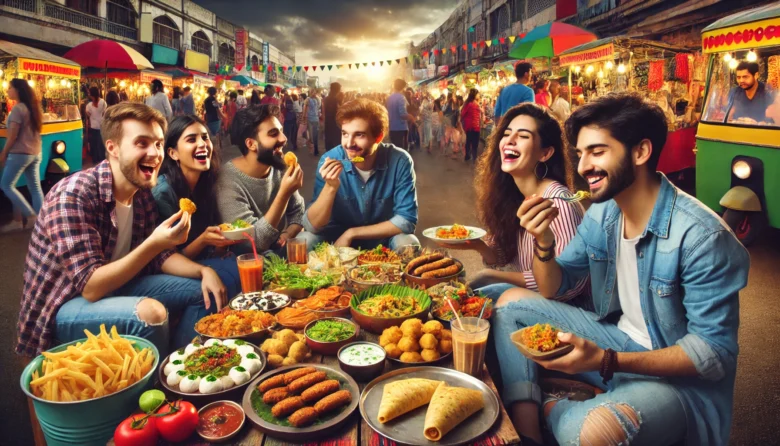In India, food transcends mere sustenance; it is a fundamental part of our identity, culture, and traditions. This blog delves into the sociology of foodie culture, exploring how our food choices reflect and shape who we are. The title “Food and Identity: The Sociology of Foodie Culture” captures the essence of this discussion.
The Indian Foodie Phenomenon
With its abundant culinary legacy, India is a haven for food lovers. From street food vendors in Delhi to high-end restaurants in Mumbai, the diversity of Indian cuisine is unparalleled. The rise of the “foodie” culture in India can be traced back to our love for flavors, spices, and the social aspect of eating together.
Food is deeply intertwined with our identities. For instance, a Bengali’s love for fish, a Punjabi’s obsession with butter-laden dishes, and a South Indian’s preference for rice-based meals are not just food preferences but cultural markers. When discussing the sociology of foodie culture, we examine how these food choices define social groups and individual identities.

The Role of Social Media
Social media has significantly influenced the rise of foodie culture. Platforms like Instagram and YouTube have paved the way for food influencers to share their culinary journeys, recipes, and reviews. This phenomenon has made food more than necessary; it’s a lifestyle.
Food bloggers and influencers like Kunal Kapur and Ranveer Brar have amassed large followers by sharing their expertise and passion for food. Their content entertains and educates their audience about different cuisines, cooking techniques, and food history.
Food as a Social Bond
In Indian culture, food is often used to forge social bonds. Festivals, weddings, and family gatherings are incomplete without elaborate meals. Sharing food is a way of expressing love, hospitality, and community. The sociology of foodie culture in India can only be discussed by acknowledging the role of food in social cohesion.
For example, during Diwali, families gather to prepare and enjoy sweets and snacks. This communal activity strengthens family ties and preserves culinary traditions. Similarly, the concept of “langar” in Sikhism, where free meals are served to all visitors at a Gurdwara, irrespective of their background, showcases food’s power to bring people together.
The Influence of Globalization
Globalization has introduced Indians to a plethora of international cuisines. Sushi, pasta, tacos, and more have found their way onto our menus. This fusion of global and local flavors has enriched our food landscape. However, this trend prompts considerations about maintaining cultural authenticity and heritage.
While embracing global cuisines, it’s essential to remember and celebrate our traditional dishes. The sociology of foodie culture includes understanding how globalization impacts food practices and how people negotiate between preserving their culinary heritage and exploring new tastes.
Health and Sustainability
The modern foodie culture in India is also increasingly focusing on health and sustainability. People are becoming more aware of how their food choices affect their health and the environment. Organic food markets, veganism, and farm-to-table concepts are gaining popularity.
People are more conscious about what they eat, where it comes from, and how it affects their health. This change highlights a broader movement in the sociology of food, where dietary decisions are driven by health, ethical, and environmental concerns.
Food and Identity in Popular Culture
Food is prominent in Indian popular culture. Movies, TV shows, and literature often depict food as a symbol of love, tradition, and identity. Bollywood films like Cheeni Kum and The Lunchbox beautifully capture the emotional and social significance of food in our lives.
Television shows like “MasterChef India” have also contributed to the foodie culture by making cooking a celebrated and competitive activity. These representations in popular culture reinforce the idea that food is an integral part of our identity and social life.
Conclusion
Food is more than a means of survival; it reflects our identity, culture, and values. The sociology of foodie culture in India is a fascinating study of how social dynamics shape and shape food. As we continue exploring new cuisines and food trends, it’s important to remember the deep cultural roots and social significance of our food.
Author’s Note
Thank you for taking the time to read this blog. As an avid food enthusiast and sociologist, I am passionate about exploring the connections between food, culture, and identity. This blog has given you a fresh perspective on the sociology of foodie culture in India. Happy eating!
G.C., Ecosociosphere contributor.




